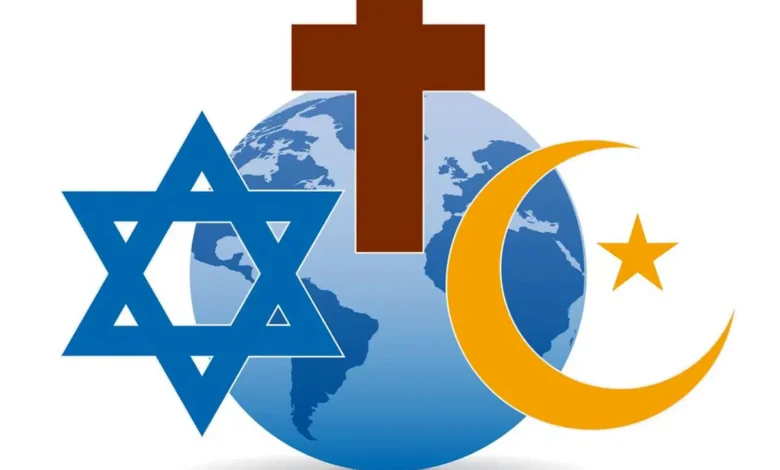How Does Islam Differ From Judaism or Christianity?

The interconnection of three monotheistic religions, Islam, Christianity, and Judaism, implies that although they all worship one God, they still have distinctive features. These are the major world religions, and all believe in the existence of a supreme being; however, their understanding and actions toward revelations from God and the prophet and the practice of their respective religions distinguish them.
However, in a box, there is still one key element in all three: then one true God. However, to the Muslims, this God is Allah, the same god who, as per Islamic teachings, has sent down his guidance to the earlier prophets of Bani Israel, inclusive of Abraham, Moses, and Jesus Christ. However, the Muslims have claimed that the last and the best revelation that has been given to humanity was given to the prophet Muhammad only. For Muslims, Allah is, first and foremost, compassionate and merciful, and he is endowed with mercy, among many other attributes that bestow him the highest status possible.
Islam’s acknowledgment of previous revelations sent to other prophets, the Torah was given to Moses, the Psalms to David, and the Gospel to Jesus is particularly interesting to modern readers. But Muslims state that such scriptures are no longer in existence in their pristine form today. This cuts across with Christianity and Judaism since Muslims consider Jesus as a prophet and recognize that he was miraculously born of the Virgin Mary. However, they never believe him to be a God or Jesus Christ, the son of God, or even the son of man. This is one of the critical differences in the theological perception of Jesus between Islam and Christianity.
There are six Articles of faith in the Islamic belief system, which present the basic principles every Muslim must adhere to. These are Tawhid, which means the Islamic belief in the oneness of Allah, Angels, and Prophets (This constitutes a total of twenty-five prophets whom the holy Quran highlights as being genuine, inclusive of Adam, Noah, Ibrahim, and Isa, among others), the sacred books that were issued to these prophets, The Day of Reckoning or Judgment, and Predestination which points to the fact that Allah is all-knowing of all things either.
The Five Pillars of Islam enlighten Muslims on everyday life and worship matters. These pillars, such as the declaration of faith, prayer, fasting, charity, and pilgrimage, resemble Judaism and Christianity practices. For example, the concept of charity bestowed on Muslims is also found in Jewish law in the form of tzedakah, which is a concept that involves taking care of the poor in society. Both Islam and Judaism have similarities through both bearing the characteristics of the Abrahamic religion and include male circumcision, prohibition of pork, and some rights of burying the dead.
Overall, these three religions are similar in many ways, but it is crucial to monitor the differences as well. There is no absolute way of defining the gods of the religions because the vision of each cell is colored by history, theology, and society. These differences do not cancel out the similarities in every civilization’s values and general ancestry but try to show how humanity strives to derive meaning and divine presence.
The search for similarities and distinctions between these three world religions helps to understand further the complexity and beauty of people’s ideas about the world and faith, which have inspired generations and guided billions of followers today.




